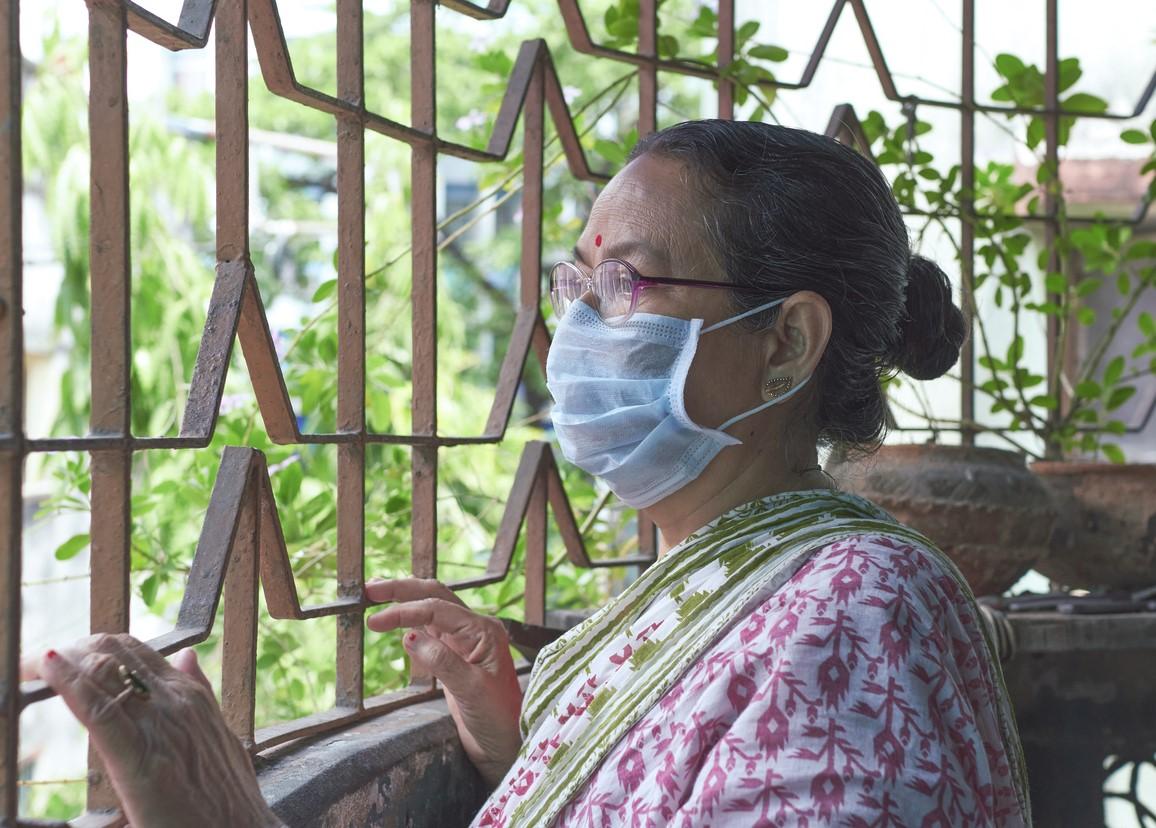Over the weekend, the pandemic total topped 35 million infections, as European countries experiencing second waves of activity dialed up their COVID-19 measures and the World Health Organization (WHO) said that the virus has disrupted services for mental health, neurologic conditions, and substance abuse.
The global total today reached 35,333,085 cases, and 1,039,000 people have died from their infections, according to the Johns Hopkins online dashboard.
Deaths top 100,000 in India
India still leads the world with the highest daily cases, though its totals over the weekend declined a bit to daily new cases in the 70,000s.
Also, the country's deaths topped 100,000 over the weekend. India is the world's second most populous country and appears to be on track to meet or exceed the US total in the weeks ahead.
More restrictions eyed in Europe
In Europe, countries experiencing steep rises in cases in the second wave of COVID-19 activity announced new measures.
Russia's daily totals have now topped 10,000, the highest level since the middle of May. Moscow is one of the country's hot spots, and Moscow schools today started an unplanned holiday break and the city is requiring businesses to have at least 30% of their staff work remotely, Reuters reported.
The Russian media is also reporting that health officials are considering the possibility of reimposing a lockdown for Moscow.
In Britain, Prime Minister Boris Johnson said today that the next weeks are critical for seeing if targeted restrictions slow the spread of the virus, and he added that the current increase is on track with earlier predictions, according to Reuters. Today the country reported 12,594 new cases, as health officials grappled with a backlog in reporting due to a technical issue, Sky News reported, noting that the problem had affected contact tracing.
Irish health officials have recommended reimposing a second national lockdown over a rise in cases that threatens the supply of intensive care unit (ICU) beds, and government officials are deliberating what steps to take. On Oct 3, Ireland reported its most daily cases since late April.
In France, officials in Paris have raised the city's COVID-19 alert to its highest level and have closed bars and ordered new protocols that restaurants must follow to stay open, according to Reuters. The country reported 12,565 cases yesterday, and a handful of major cities are experiencing illness spikes.
Elsewhere, Iceland has closed its bars and gyms to curb its COVID-19 flare-up, and Italy this week is expected to announce tightened restrictions to blunt its rising case numbers.
In the Middle East, another region seeing cases spiking, Iran extended its red alert for COVID-19 to the whole country, which reported a record daily high of 3,902 cases over the past 24 hours, Reuters reported.
And in Lebanon, an ongoing surge had threatened to overwhelm the health system. The country—grappling with several crises including the aftermath of the Beirut explosion—reported a record daily high over the weekend, and ICUs are at 82% of capacity.
Mental health disruptions
The pandemic has disrupted critical mental health services in 93% of countries, the WHO said today, based on its recent survey of 130 countries. It published the findings ahead of an Oct 10 advocacy event that will call for increased mental health investments in the wake of COVID-19.
The announcement underscores how the pandemic has disrupted crucial health services across a broad range of areas, including chronic disease management and childhood immunizations. The WHO emphasized that the cuts in mental health services come at a time of increasing demand due to pandemic impacts, such as bereavement, isolation, and economic anxiety.
In another key consideration, infection with the virus can lead to neurologic and mental health complications, such as delirium, agitation, and stroke. The WHO also notes that some disorders—such as underlying neurologic conditions and substance abuse disorders—can make people more vulnerable to the virus.
Telemedicine has helped higher-income countries bridge the mental healthcare gap, but only about half of lower-income countries have been able to adapt their systems to the technology.
The WHO also drew attention to funding for the increased mental healthcare challenges. For example, 89% of countries have mental health and psychosocial support in their national COVID-19 response plans, but only 17% have full funding for the measures.
In other WHO developments, its executive board is meeting today, and some of the developments reflected some of the contentious political ramifications of the outbreak, Reuters reported.
Russia's delegation called for an evaluation of the legal and financial impact of the Trump administration's announced withdrawal from the WHO, and the United States today said it couldn't tolerate the "failure" of other countries—apparently referring to China—to provide accurate, complete, and timely information about disease outbreaks.
The United States, European Union, and Australia have called for a WHO-led mission to China to probe the source of the outbreak. A WHO advance team has visited China to sketch out the scope of the studies, and the group is now putting together a group of global experts.




















